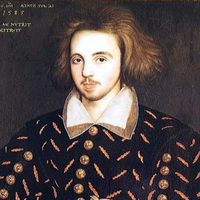Dialogue in Verse
_Jack._ Seest thou not yon farmer’s son?
He hath stoln my love from me, alas!
What shall I do? I am undone;
My heart will ne’er be as it was.
O, but he gives her gay gold rings,
And tufted gloves [for] holiday,
And many other goodly things,
That hath stoln my love away.
_Friend._ Let him give her gay gold rings
Or tufted gloves, were they ne’er so [gay];
[F]or were her lovers lords or kings,
They should not carry the wench away.
_Jack._ But 'a dances wonders well,
And with his dances stole her love from me:
Yet she wont to say, I bore the bell
For dancing and for courtesy.
_Dick._ Fie, lusty younker, what do you here,
Not dancing on the green to-day?
For Pierce, the farmer’s son, I fear,
Is like to carry your wench away.
_Jack._ Good Dick, bid them all come hither,
And tell Pierce from me beside,
That, if he thinks to have the wench,
Here he stands shall lie with the bride.
_Dick._ Fie, Nan, why use thy old lover so,
For any other new-come guest?
Thou long time his love did know;
Why shouldst thou not use him best?
_Nan._ Bonny Dick, I will not forsake
My bonny Rowland for any gold:
If he can dance as well as Pierce,
He shall have my heart in hold.
_Pierce._ Why, then, my hearts, let’s to this gear;
And by dancing I may won
My Nan, whose love I hold so dear
As any realm under the sun.
_Gentleman._ Then, gentles, ere I speed from hence,
I will be so bold to dance
A turn or two without offence;
For, as I was walking along by chance,
I was told you did agree.
_Friend._ ’Tis true, good sir; and this is she
Hopes your worship comes not to crave her;
For she hath lovers two or three,
And he that dances best must have her.
_Gentleman._ How say you, sweet, will you dance with me?
And you [shall] have both land and [hill];
My love shall want nor gold nor fee.
_Nan._ I thank you, sir, for your good will;
But one of these my love must be:
I’m but a homely country maid,
And far unfit for your degree;
[To dance with you I am afraid.]
_Friend._ Take her, good sir, by the hand,
As she is fairest: were she fairer,
By this dance, you shall understand,
He that can win her is like to wear her.
_Fool._ And saw you not [my] Nan to-day,
My mother’s maid have you not seen?
My pretty Nan is gone away
To seek her love upon the green.
[I cannot see her 'mong so many:]
She shall have me, if she have any.
_Nan._ Welcome, sweetheart, and welcome here,
Welcome, my [true] love, now to me.
This is my love [and my darling dear],
And that my husband [soon] must be.
And, boy, when thou com’st home, thou’lt see
Thou art as welcome home as he.
_Gentleman._ Why, how now, sweet Nan! I hope you jest.
_Nan._ No, by my troth, I love the fool the best:
And, if you be jealous, God give you good-night!
I fear you’re a gelding, you caper so light.
_Gentleman._ I thought she had jested and meant but a fable,
But now do I see she hath play['d] with his bable.
I wish all my friends by me to take heed,
That a fool come not near you when you mean to speed.

